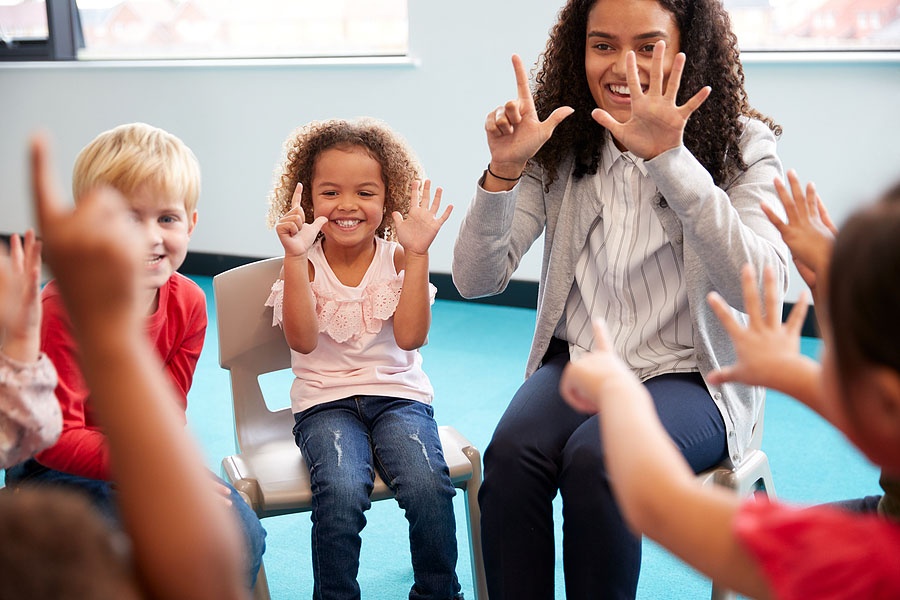When Maria Montessori began formulating the Montessori Method, she had been given the task of teaching preschool-aged children who had either been institutionalized or labeled as “unteachable.” She watched how children interacted in a natural, unstructured setting, and used her scientific observations to create the famous prepared environment and her unique methods for helping children develop appropriately. The kids that she was expected to teach included children with many of the learning challenges faced by children at the time– and today as well.
Self-Paced Learning
The Montessori preschool is a self-paced learning environment, and that is important for children with special developmental considerations. Instead of all of the children learning the same thing at the same time, children learn in tandem, with all children engaged in learning, but often working on different lessons. And because Maria Montessori recognized that children are able to learn from their peers, children who have already learned a troublesome lesson can help other children get the hang of it as well.
Individual Attention
Some children need more personalized instruction to achieve goals that are giving them difficulty. Because Montessori allows children to be their own educational guides, Montessori teachers have more time available to those who need extra help.
Mixed-Age Groups
Montessori classrooms encompass a 3-year span of ages. This means that a child who isn’t picking up on a task has plenty of time to master it, and it gives children a more consistent classroom because they remain with the same teachers for several years. Some children learn to read before they learn addition, and others get the hang of doing math almost immediately. In a Montessori classroom, both types of children can take their time learning, and older children are able to assist the younger ones in accomplishing developmental goals.
Self-Directed and Self-Correcting
Authentic Montessori activities are an important aspect of the Montessori Method and are beneficial for children who require special learning strategies. Montessori materials are built to last for years, be practical activities for a specific age group, and allow children to correct the activity themselves if they make a mistake.
Montessori is a special type of educational strategy, and it works well for a wide variety of children. There is no way to know in advance whether Montessori will be effective with every variation of learning challenges, but it does have a long history of helping children with recognized challenges succeed beyond what might be expected in a traditional public school setting.
